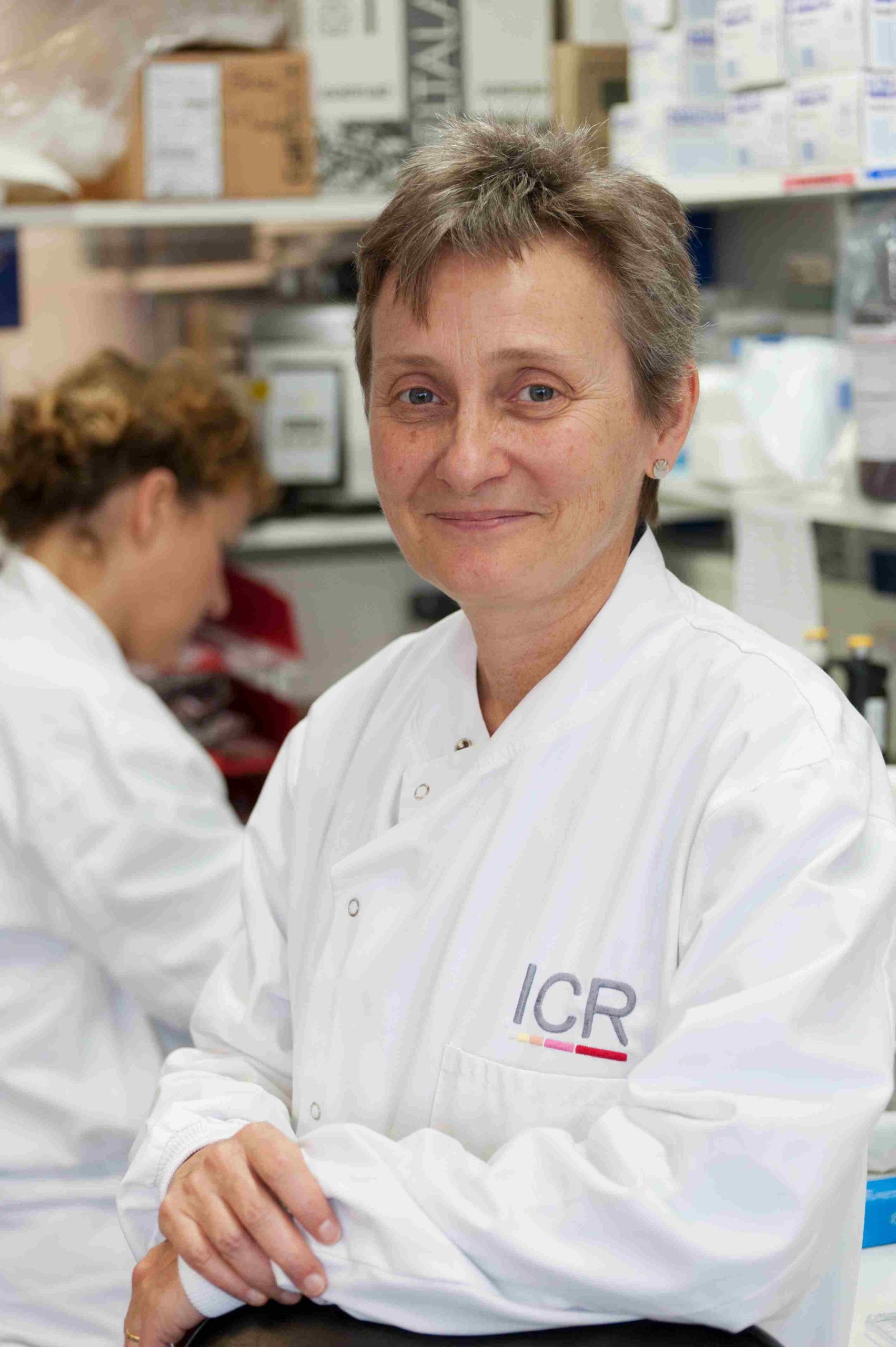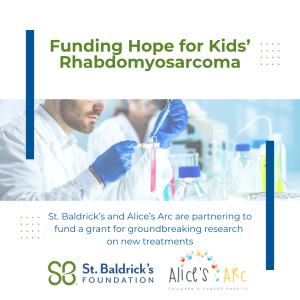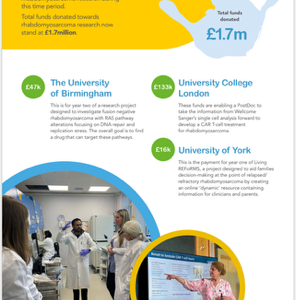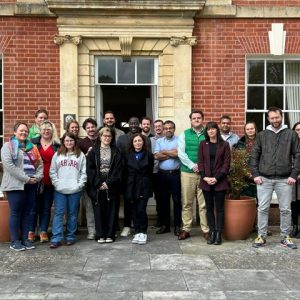Alice’s Arc has invested £279,529 in a project focussed on the MYOD1 L122R mutation that can be present in fusion negative rhabdomyosarcoma and how it can be therapeutically targeted. The project will last for three years and is being led by a team from the Institute of Cancer Research, UK.
Background
Professor Janet Shipley and Dr Joanna Selfe from The Institute of Cancer Research (ICR) are working to build on their understanding of MYOD1 mutations and how they could be targeted in the treatment of rhabdomyosarcoma (RMS). The MYOD1 protein participates in regulating the expression of genes involved in skeletal muscle development and differentiation. This process is dysregulated in rhabdomyosarcoma so that RMS cells are unable to completely differentiate and become normal mature muscle fibres. This means the cancer cells continue to grow abnormally
A recurrent mutation in MYOD1 (L122R) has been identified in some tumours from RMS fusion negative patients. Fusion negative tumours comprise about 80% of all RMS tumours. 20% of patients in this group pass away from the disease. Identifying the patients at high risk in fusion negative RMS is key to both improving outcomes and sparing patients with good prognoses from some of the debilitating side effects of intensive treatment.
A recent collaborative piece of research (enabled by Alice’s Arc, Talan’s Trust and Chris Lucas Trust) discovered that 3% of these tumours featured the MYOD1 L122R mutation resulting in a very poor prognosis. This demonstrates a clear need to identify alternative treatments for this group of patients, hence the creation of this project.
Aim
To generate models demonstrating the presence and absence of the MYOD1 (L122R) mutation. These will be compared in order to understand the impact that this mutation has on RMS cells. We will also screen for and validate new treatment options that exploit the effects that the mutation has on RMS cells. This is expected to lead to improved patient outcomes for this subgroup.
Plan of investigation
1 – Generation of cell models plus and minus the MYOD1 (L122R) mutation
2 – Determining the impact of MYOD1 (L122R) mutation
3 – Drug screen, in collaboration with the Beat Schafer lab in Switzerland
4 – Validation of drug screen
Clinical application
Potential to treat patients with MYOD1 mutant tumours in the FaR-RMS clinical trial through the EpSSG or the ESMART trial or a new early phase trial via the POEM (Paediatric Oncology Experimental Medicine) Centre linked to the Royal Marsden.
How will the funds (£279,529) from Alice’s Arc be used?
The money will be used to fund the salary of Dr Joanna Selfe, an experienced post-doctoral scientist who was involved in the collaborative sequencing project that demonstrated a link with MYOD1 mutations and poor outcomes. Funds will also be used for the necessary consumables and lab costs required to perform the various analyses associated to the work.
Dr Joanna Selfe commented: “I have been working to expand our knowledge of rhabdomyosarcomas and how they can be treated for a number of years. I am dedicated to improving the outlook for these young patients and having a molecular marker indicating poor prognosis in fusion negative rhabdomyosarcoma has opened the door to finding novel treatments to make this possible. I am humbled to have Alice’s Arc’s generous support, which will make significant progress possible.”





